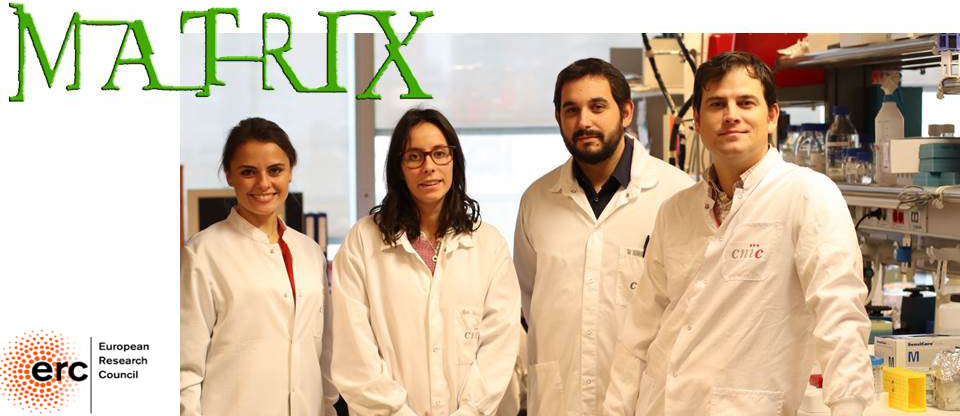A Project by Borja Ibáñez from the CNIC and the FJD funded by the European Union with an ‘ERC Consolidator’
- The MATRIX Project led by Dr. Borja Ibáñez seeks to develop innovative treatments for cardiac toxicity associated with cancer treatments
- One of the most “innovative” therapies that the MATRIX proposes is the auto transplantation of the mitochondria
- Matrix will be jointly developed in the CNIC and the FJD within a collaborative framework which started in 2015 to address the study of myocardial diseases
- The ERC Consolidator grant from the European Commission is endowed with 2 million euros for the next five years
The MATRIX Project led by Dr. Borja Ibáñez, Director of Clinical Research at the National Center for Cardiovascular Research (CNIC), has received an ‘ERC Consolidator’ grant from the European Commission, endowed with 2 million euros for the next five years, to develop new and innovative treatments for cardiac toxicity which is associated to some cancer treatments. MATRIX (Novel mitochondria-targeted therapies for cancer treatment-induced cardiotoxicity) will be jointly developed at the CNIC and at the University Hospital Jiménez Díaz Foundation (FJD) within a collaborative framework which started in 2015 to address the study of myocardial diseases.
The main objective of the European Research Council (ERC) program is to finance ‘ground-breaking’ ideas that can revolutionize the health and society of the future. Its main criteria is to support research of excellence. The funded project is part of the ERC Consolidator Grant program which is aimed at young researchers, who have already shown great leadership directing their group, but are still in a consolidation phase. The ERC is the first European organization that collaborates in the funding of fundamental research projects based only on the criteria of a researcher’s scientific excellence and the innovative strength of his/her ideal, regardless of his/her nationality or field of research.
The "Translational Laboratory for Cardiovascular Imaging and Therapy" directed by Dr. Ibáñez at the CNIC is eminently translational and, although it addresses issues related to biology and the mechanisms of disease and health, its ultimate goal is always to reach the patient. In fact, Ibáñez is also a cardiologist at the FJD Hospital and a group leader at the CIBER of cardiovascular diseases (CIBERCV). His research-clinical duality places him in an ideal position to solve clinically relevant questions through basic and experimental research.
In this edition, Dr. Ibáñez's project has been selected, guaranteeing funding to consolidate his multidisciplinary research group and recognition of the scientific quality of his project and his leadership capacity. The applications received have been reviewed and evaluated by a panel of scientists who took into consideration the excellence of the proposal, the researcher and the institutions to which he/she belongs to in order to ensure the quality of the projects financed.
Cardio-oncology
The great advances in the treatment of cancer, a disease in which 4 million new cases are diagnosed every year in Europe, sometimes have a 'toll' to pay in the form of important adverse effects, such as cardiotoxicity. Up to 25% of patients receiving treatment with some of the most common drugs -anthracyclines and trastuzumab- develop some degree of myocardial toxicity, which can end up being very serious and condemn the cancer survivor to chronic heart failure or even to death from this complication.
Dr. Ibáñez explains that there are currently three major challenges in cardio-oncology: to know better the fundamental mechanisms responsible for the cardiac damage associated with these highly effective treatments; perform an early diagnosis of myocardial damage –nowadays this is only done when the damage is irreversible in many cases-, and develop specific therapies based on mechanistic knowledge -the treatments used today for cardiotoxicity are nonspecific and generally ineffective-. Based on the group's previous research in the field of mitochondrial biology and heart failure, MATRIX will address these three major challenges.
Mitochondria are the 'power stations' of cardiac cells and permanent damage to them produces severe and irreversible dysfunction of the heart muscle. MATRIX, explains Dr. Ibáñez, works on the hypothesis that the different effects induced by these drugs in the heart converge in a final mechanism of global deterioration in energy production by the mitochondria. "Thanks to the discoveries we have recently made in our experimental studies with advanced imaging, we are able to observe this damage in the mitochondria in a non-invasive way and very early on. Now- he adds -these findings will be transferred to the clinic for the first time.” MATRIX will study, through these innovative cardiac magnetic resonance techniques, patients who start treatment with these drugs.
One of the most 'innovative' and 'radical' treatments proposed by MATRIX is the auto transplantation of healthy mitochondria to replace those damaged by cancer treatment, something never done before and for which the group has very solid preliminary data which will help convince the European Commission of its viability. "It is about - explains the researcher - a radically new approach and that we intend to take to the clinic if MATRIX is successful. This would be a paradigm shift in the treatment of heart disease”.











